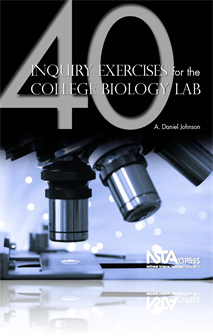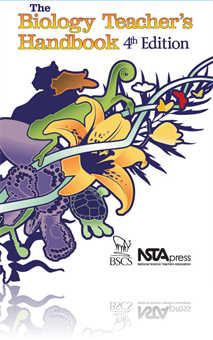All Book Chapters
Book Chapter
An Outcomes-Oriented Approach to Implementing Inquiry
This chapter provides a short overview of the process of curricular planning with special emphasis on inquiry-based instruction. It outlines a validated method that curriculum designers and coordinators can use to establish program goals, select inst...
Book Chapter
Assessing Inquiry-Based Instruction
Assessment encompasses more than just exams and papers. It also involves informally assessing student learning in progress, formally assessing students to determine their learning gains, and assessing whether the current instructional practices and c...
Book Chapter
Teaching Techniques for Inquiry Labs
Chapters 1-3 described general principles of inquiry and processes for developing and assessing an inquiry-centered course. This chapter examines the process in greater detail by outlining specific behaviors and practices that instructors can use to ...
Book Chapter
The Relationship Between Teaching and Learning
This chapter introduces a summary of research about learning and discusses the implications for teaching. The characteristics of professional development are described that can help transform teaching beliefs and practices in ways that address curren...
Book Chapter
How to Use Collaborative Learning in Your Classroom
Educators have been conducting research about the relative effects of cooperative, competitive, and individual learning for several decades. The research shows that collaborative learning experiences tend to promote higher achievement in learners tha...
Book Chapter
How to Use Science Notebooks in Your Classroom
Science notebooks can take many different forms. The important thing to remember is that they should provide a place where student experiences, data, and language can come together to form meaning. This can happen when daily entries lead to conceptua...
Book Chapter
How to Help Students Make Meaning From What They Read
Students need opportunities to develop "reading to learn" strategies. Although many students may have the ability to read text, some lack the ability to comprehend and react to it. The strategies provided in this chapter are designed to support stude...
Book Chapter
How to Help Your Students Evaluate Information
Every day, we are bombarded with information on many issues from a wide variety of sources. Today's students are especially adept at accessing information through the internet. They likely are much less adept at accessing the intent, relevance, and v...
Book Chapter
How to Help Students Construct Their Understanding of Science Concepts
Conscientious biology teachers continually strive to improve their instructional practices to enhance student learning. At the heart of this goal is a focus on making sure that students understand the biology being taught. One important way to increa...
Book Chapter
How to Promote Scientific Conversations Among Your Students
Helping students develop skills for scientific conversation has many benefits. Engaging in scientific conversation elicits students' prior knowledge, enables students to construct their understanding of science concepts, encourages all students to pa...
Book Chapter
How to Use Assessments to Improve Student Learning
The ability of students to “do” biology and to understand biology concepts is essential. Developing biology lessons and assessing for an understanding of biology skills and concepts go hand-in-hand. Well-designed biology lessons result from well-...
Book Chapter
How to Select Programs for Your Inquiry Classroom
Besides teachers and students, the most consistent presence in school science is the instructional materials. BSCS, in collaboration with the K-12 Alliance of WestEd, developed a process and set of tools to help teams of science teachers analyze inst...
Book Chapter
BSCS's Influence in Biology Education
This chapter describes the dominating concerns in science education over the past 50 years. It also discusses the way BSCS has addressed those concerns through curriculum and professional development and through research and evaluation. The chapter i...
Book Chapter
A BSCS Perspective on Contemporary Biology Education
This chapter arises from an opportunity to pause and reflect on biology education in the past and what it will be in the immediate future. Four themes are featured that address the topic of biology education—implementation of fundamental biological...
Book Chapter
This chapter outlines three major areas that play a role in equity in the science classroom—addressing issues of bias, making connections between science and society explicit, and helping students cross the border into the culture of science—each...



